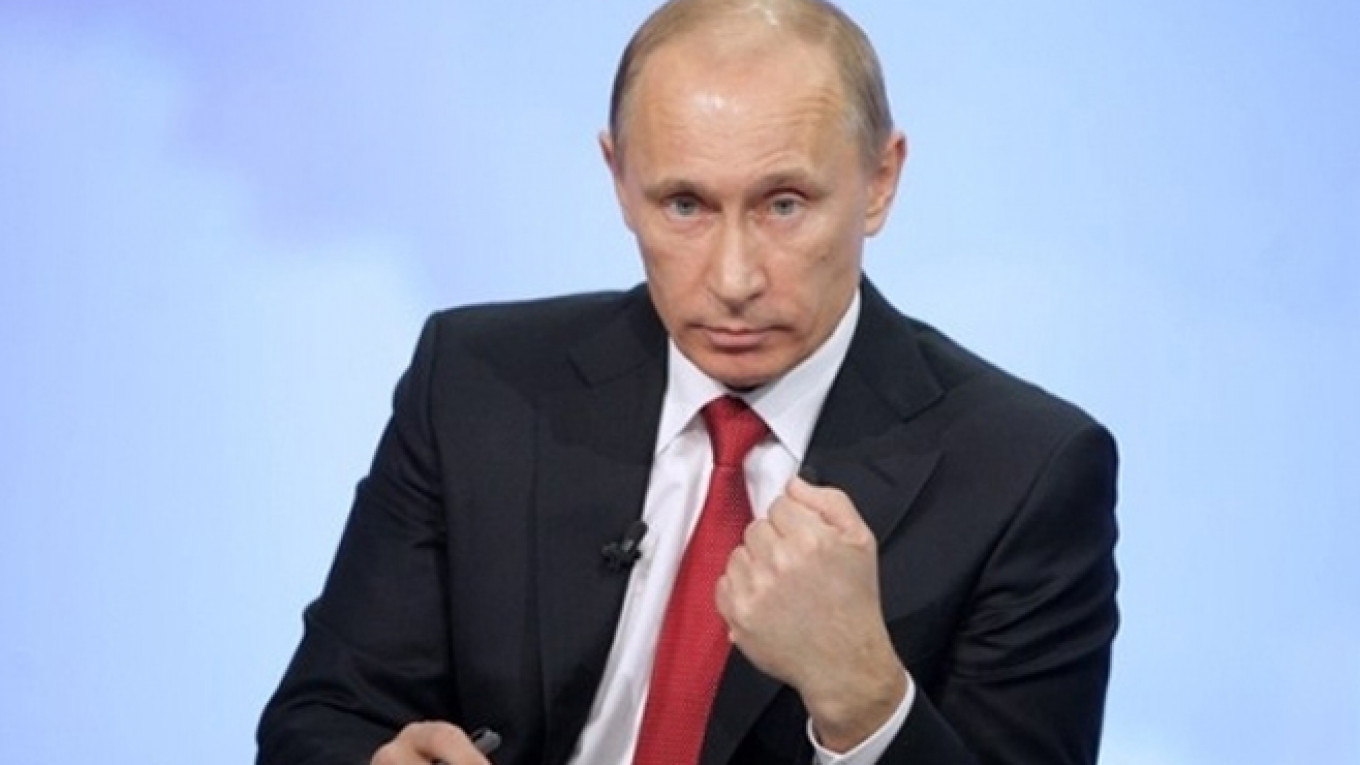Western sanctions have been introduced to punish Russia for its annexation of Crimea and the alleged support of Ukrainian separatists. In a longer run, the sanctions are also meant to make Russia abandon its "crony" capitalism model in favor of Western-style democracy and free-market system. After all, the argument goes, isn't that what happened following the sustained Western effort to isolate the Soviet Union politically and economically during the Cold War?
The sanctions may indeed help Russia, but not in the way expected by the Western governments. If the Kremlin does not follow the pattern of self-destructive behavior it adopted following former U.S. President Ronald Reagan's Strategic Defense Initiative, the West's isolation may do Russia some good. In the early 1980s, the Soviet leadership bought into Reagan's bluff by raising military expenditures to unsustainable levels, while refusing to initiate internal reforms to modernize the economy.
Putin needs to exploit the isolation imposed by the West by rebuilding Russia as a strong state. This could help revive the country's economy.
If President Vladimir Putin wants to avoid this self-destructive scenario, he should exploit the isolation imposed by the West by rebuilding Russia as a strong state. This model has traditionally assisted Russia in mobilizing resources necessary for cultural revival and economic modernization.
Historically, the need for mobilization arose each time the system was threatened from inside or outside. Muscovy's princes Ivan the Great and his grandson, Ivan IV, laid the foundations of the Russian state by ending the Tatar occupation, consolidating independence from Rome and establishing internal sovereignty from the nobles and the church. Peter the Great responded to European threats by tightening control over the elites and imposing a new ideology of loyalty to the state. Finally, Stalin consolidated the state after the Bolshevik Revolution and the devastating civil war through mass purges against bureaucracy and all those perceived disloyal to the new system.
The post-Crimea situation assists Putin in two principal ways. First, it makes him genuinely popular. Second, Western sanctions against prominent Kremlin's officials and businesspeople may make it harder to take money outside the Russian economy and keep it in European and U.S. banks. If the West cuts Russia off from much of the international banking system as it did with Iran, it will have very damaging short-term effects. Yet this will also push the Kremlin to build an alternative financial system.
For Putin's popularity to endure, however, it must be supplemented by sound economic performance. Russians will support the state only if they see progress in fighting corruption and social and economic development. In addition, in absence of sound policy, the corrupt elites will surely soon find other schemes to divert resources from the state.
Putin's tasks are not to rebuild the neo-Soviet state but to recreate foundations of Russia's traditional, strong state system. One key task is to mobilize resources for development and punish those involved in diverting resources from the state. By taking advantage of relative isolation from the West, Russia must lay out foundations of financial and economic independence. The idea of establishing the ruble as a reserve currency and substituting petrodollars for a national currency is already under discussion in Russia. The isolation from the West should also encourage Russia to attract investments from Asian and Middle Eastern countries into national development projects.
Putin must also find a way to purge disloyal corrupt elites who sabotage national development projects and embezzle state funds. While projects such as the APEC summit and the Sochi Olympics were completed, the construction costs proved to be too high and sustainable only under constantly rising world energy prices.
It is also important to refrain from Soviet-like foreign policy overstretch and not strain relations with the West any further. Future European investors, in particular, are much too valuable to spook by provocative international behavior.
No less important, rebuilding the state will help Russia strengthen its cultural values and cure its inferiority complex. Having regained confidence, it will be ready for a new, deep engagement with the outside world.
Amid the adverse environment caused by sanctions, Russia needs to take advantage of the opportunity to strengthen the state. If this opportunity is lost, it could lead to the country's demise.
Andrei Tsygankov is professor of international relations and political science at San Francisco State University.
A Message from The Moscow Times:
Dear readers,
We are facing unprecedented challenges. Russia's Prosecutor General's Office has designated The Moscow Times as an "undesirable" organization, criminalizing our work and putting our staff at risk of prosecution. This follows our earlier unjust labeling as a "foreign agent."
These actions are direct attempts to silence independent journalism in Russia. The authorities claim our work "discredits the decisions of the Russian leadership." We see things differently: we strive to provide accurate, unbiased reporting on Russia.
We, the journalists of The Moscow Times, refuse to be silenced. But to continue our work, we need your help.
Your support, no matter how small, makes a world of difference. If you can, please support us monthly starting from just $2. It's quick to set up, and every contribution makes a significant impact.
By supporting The Moscow Times, you're defending open, independent journalism in the face of repression. Thank you for standing with us.
Remind me later.






